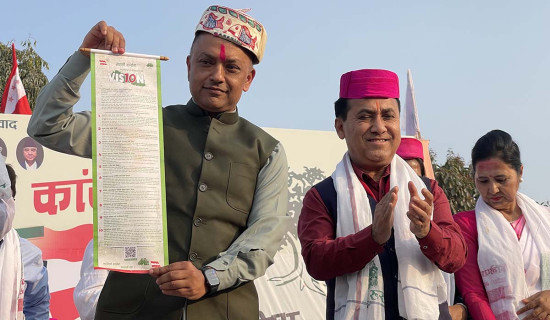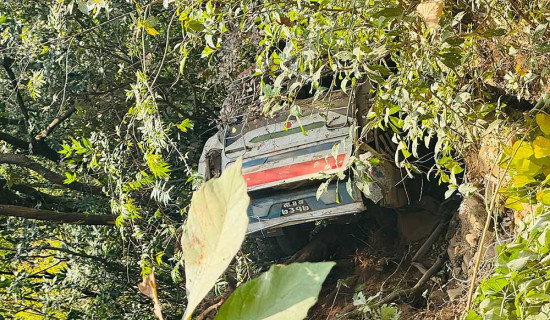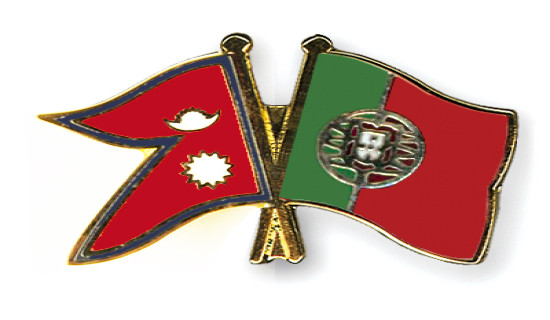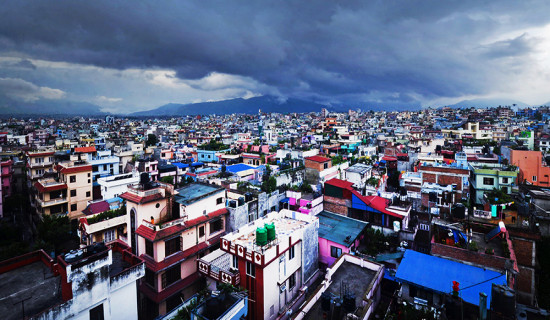- Thursday, 19 February 2026
Bringing Informal Polity Into Constitutional Domain
The concept of politics is not precisely translated into Nepali raj (state) and niti (policy) or statecraft. In Nepal, genuine policy discourse is less anchored in the deliberative formation of public opinion. Similarly, netritwo (leadership) implies those in the commanding height of public policy and decision. Today's political leadership of Nepal, however, hardly holds comprehensive knowledge appropriate for the formulation of contextual public policy to uplift the nation to an upland of progress, justice and peace. Nepali political parties can generate political efficacy if their formal duty to promote social goods is well grounded in the social investment of people in electoral campaigns, not the personal return of leaders.
Likewise, they develop value-consensus on constitution and worldview, even a shared disposition that does not stir the people to unravel the political order donned by liberal ideals and culture of tolerance. Without a people-oriented party system capable of socialising private sphere into public sphere of citizenship, favouring mandate and smooth alternation in the government, constitutional democracy in Nepal cannot restrain party friction, factionalism and division spurring centrifugal forces. As a rentier class freed from policy making duty but reaping political benefits it holds no interest to transform the informal society, economy and polity into a constitutional one. The penetration of formal Nepali polity by informal elements -- powerful individuals, family, friends, caste, ethnicity, religion and region and network of special interest groups -- has afflicted the impersonality of its performance.
Sisyphean test
Thoughtful Nepalis and critical media are, therefore, contesting those informal spheres operating at private spheres and influencing the outcome of formal actors -- political parties, government institutions and constitutional bodies from impartial policies and making effective rules. One Sisyphean test of Nepali parties is their ability to bring all actors under rule of law, formalise informal spheres and end pre-political and anti-political trends, corroding the autonomy of politics from society, economy and geopolitics. Only the rescue of its autonomy can spur hope and faith of Nepalis in formal politics, leadership and institutions and protect leaders from mutual injury that spoils the purpose of politics to serve public interests.
Obviously, retaking vital policy making duty from alien regimes and the bureaucratic and technocratic sectors requires Nepali leaders to acquire knowledge, skill and self-termination of political will. They need reflective awareness of the human condition and feel accountable to it beyond their careerist pull. So far they have not taken responsibility for the failure of the execution of wrong policies in the nation that is the cause and effect of Nepali people’s race to the bottom. They only shift blame to each other. This condition has devalued the leaders as they are saturated with clientalist loyalties, a type of informal politics which detaches citizens from general benefits. This is the maladjustment of leadership to participatory democracy eased by information revolution, awareness of popular sovereignty and the public’s right to participate in governance.
Informal channels of politics respond to the crowd mobilisation in the streets and have a greater propensity for success than articulation in the legitimate platforms and the parliament for deliberative ways to resolve their problems. Several small parties infused with populist, radical and cultural streams have begun to screw the establishment who for long enjoyed shared adventure in a syndicate rule, an added trait of informal polity.
Careful utilisation of public power is a vital factor in the formalisation of democracy in individual and public life. For the majority of Nepalis, leadership is viewed as status, wealth and power seeker, which they pursue by recruiting loyal followers in the political parties, mobilise for election and control the reins of government. As the Nepali political leadership has increasingly lost their concern to aggregate and articulate in the formal sphere of politics, they began to cultivate their pre-rational and informal ties with the people caught in fixed geographical and political locations, unwritten transcript of caste and web of power. They are all the signs of de-constitutionalisation of society.
The struggle of legislators for Constituency Development Fund is precisely formulated to encroach on the executive domain which can skew the legislative realm and dent the autonomy of local self-rule thus cultivating informal attributes in polity. The existence of informal patron-client network politics portents that Nepali legislature is seen to act more for its own privilege than serve the public good. Conscious Nepalis feel that their destiny lies in self-expression. It is breaking the culture of silence reared by informal polity. So long as Nepali leaders stay in the comfort zone of politics as usual, the crisis of socialisation will continue to roll unabated, uncomforting every aspect of Nepali society.
The fermentation populist parties, cultural groups, identarian activism and beaming independent politicians and their demand from leaders to become sociable beyond their herd mentality of elemental unswing hit deep down the surface. Media often articulate that the thrills to choose politics in Nepal are status and wealth, not service above self. Fierce factionalism in each political party has startling effects. It is due to the fact that leaders do not trust impersonal institutions whether it is citizen, party, market, civil society, citizens or the state. And, therefore, they try to create a loyal group basis of politics which tousles the emotions of future conscious public. The party institutions are vital because they define the rules of the game and an arena of decision making where leaders operate within that framework and fulfills people’s preference.
Nepali leadership has not developed a capacity to steer the nation to constitutional culture and direction. Personalised maneuvers of leaders, without consultation with the people, do not yield positive outcomes for the national desire and fulfill their rights as an aspiration. Informal rules, rituals, customs and code still govern their behaviour. The impact of the information revolution has made Nepalis conscious about representing, thinking and acting subjects, not passive actors of the nation incapable of articulating their demands and legislating change. This new consciousness entailed fundamental change in the prevailing concepts and practices of informal politics in Nepal. It is also exposing the deceitful promises of leaders during elections and emptiness of their stand.
So long as common values entrenched in the constitution are not respected and ways of resolving differences are not law-based, stability of democratic regime less likely occurs. When the constitution has become a contested site for power struggle it is hard to bring the state, leadership and people in coherence to muster their synergy for formal collective action. The model of competition among leaders seeks to capture core characteristics of informal politics in Nepal. Politics is largely personalistic, not institutional. If leadership finds the party constrained to their passion, appetite and interest they break the party and ally with its rivals to rehabilitate self in power. Learning of leadership from popular feedback is vital for a party's adaptation to a new situation.
Well-functioning party does well because of its vital traits: inclusiveness, ability to compromise the legitimate interests within the organisational structure, popular representation, socialisation and adaptability. The big-man politics or caste, class, ethnic, gender, regional or religious identity orientation of leadership have not internalised the value of the equality of citizens and political institutionalisation of parties making its behaviour predictable, accountable and service based. Intellectual pursuit and pool of knowledge in the parties is essential to understand the changing public opinion and shifting the traits of informal polity to the stimuli of information, education, migration and consciousness of Nepalis.
Critical reflection
The latter factors do not push tribal conformity in politics but pull to a critical reflection and use of corresponding judgment. The feeling, opinion, preference and responsiveness of intellectual trends in politics help the leader to apply creative strategies. The informalisation of the polity is sustained by a weak state -- the Nepali state lacks a legitimate monopoly over the use of political power in the entire society. For a long time Nepali politics was caught in a Cartesian trap of playing political games in a binary ideological dimension of “we” and “they” and its political culture of negating the others or entering into collusion of odd parties.
This has made politics a zero-sum game where the losers did not have any stake in democratic polity. It has made the execution of social inclusion of the excluded and rule of law difficult and imposed an inordinate burden on the protection of human and constitutional rights. When the impersonal means of coercion is controlled by political elites for partial interests, political power loses popular trust and legitimacy. Only the robustness of civic institutions can regulate political contests under the constitutional spirit and prevent politics becoming a game of competition for private rents extracted from public revenue for the elites and heed no concern to overcome informal traits of polity inimical to democratic outcome.
(Former Reader at the Department of Political Science, TU, Dahal writes on political and social issues.)









-original-thumb.jpg)
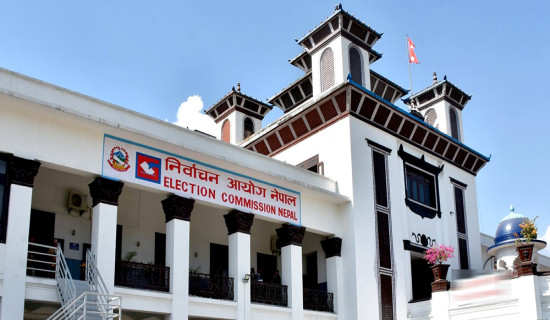
-original-thumb.jpg)

